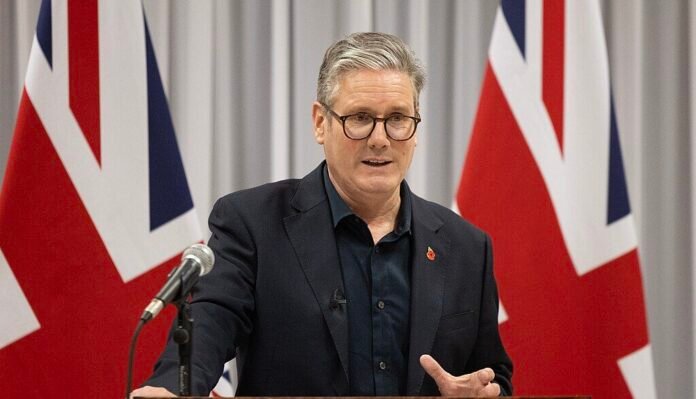Keir Starmer’s efforts to secure a trade deal with Donald Trump face complications from the controversial Chagos Islands deal, raising questions over the future of UK-US relations
As Donald Trump prepares for his second term as president, UK Prime Minister Sir Keir Starmer has intensified efforts to secure a trade deal with the US. A new “mini-Cabinet,” led by Starmer and comprising senior figures like Rachel Reeves and David Lammy, has been working on strategies to entice the president-elect. The meetings are being coordinated by Jonathan Powell, whose role in negotiating the Chagos Islands deal with Mauritius has stirred concerns in Trump’s team.
The Chagos Islands, which house a US airbase, are at the center of the controversy. Powell’s deal promises to transfer the islands to Mauritius, with added commitments for climate change funding. However, Trump’s team has demanded a delay in the decision until after his inauguration, citing concerns that this could benefit Beijing’s military ambitions in the Indo-Pacific.
Despite the diplomatic tension surrounding the Chagos deal, Starmer has expressed hope that Trump’s “longstanding affection” for the UK will help solidify a trade deal. Labour’s message is clear: the UK needs closer ties with the US to foster economic growth and tackle global challenges.
Starmer’s diplomatic efforts come as fears grow over the impact of potential tariffs on the UK economy. Discussions are ongoing, with Labour pushing for accelerated negotiations to avoid costly trade disruptions. On the ground, Reeves will meet Trump’s allies at the World Economic Forum in Davos next week in hopes of smoothing relations.
As the Trump inauguration nears, political intrigue mounts. The ceremony will be a scaled-down event, featuring musical performances and a virtual address. Meanwhile, critics within Labour worry about the implications of working closely with the incoming administration, especially in light of Trump’s more extreme policy proposals.
Embed from Getty ImagesIn the UK, there are mixed reactions to Labour’s approach. While some embrace the potential trade opportunities, others worry about the political risks of aligning too closely with a controversial president. As Labour continues to navigate these complexities, all eyes will be on Starmer and his efforts to redefine Britain’s relationship with the US.
SKY NEWS
Sir Keir Starmer faces significant challenges in building a productive relationship with incoming US President Donald Trump. The stark contrast in leadership styles—Starmer’s measured, lawyerly approach versus Trump’s bombastic, populist persona—sets the stage for tensions. Reports suggest Starmer may struggle to secure a White House visit, with some claiming he’ll be “at the back of the queue.” Adding to the strain, Trump’s team is reportedly considering rejecting Peter Mandelson as US ambassador, a move that would insult the UK. Labour’s historical support for the Democrats, including activist involvement in Trump’s rival Kamala Harris’ campaign, has exacerbated the divide. Senior Labour figures have also used harsh language to criticize Trump, further deepening animosity. With right-wing British politicians like Boris Johnson and Nigel Farage aligned with Trump, Starmer risks political isolation. These factors make it an uphill battle for Starmer to forge a positive relationship with the incoming US president.
GOV.UK
On 19 January 2025, Prime Minister Keir Starmer issued a statement congratulating President Donald Trump on his inauguration. He emphasized the enduring partnership between the UK and the US, highlighting their shared history of collaboration in defending against tyranny and working towards mutual prosperity. Starmer acknowledged President Trump’s longstanding ties to the UK, expressing confidence that the relationship will continue to strengthen. Since their first meeting in September, Starmer and Trump have discussed deepening the transatlantic bond and addressing global challenges. Starmer expressed optimism for future cooperation, particularly in areas of growth, peace, and security. He concluded by reaffirming that the special relationship between the two nations would thrive for years to come.
